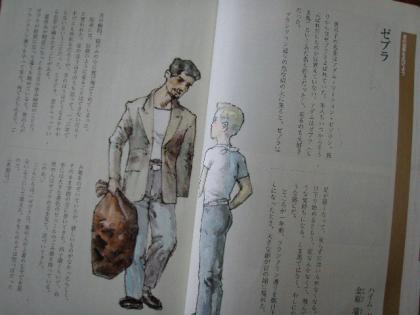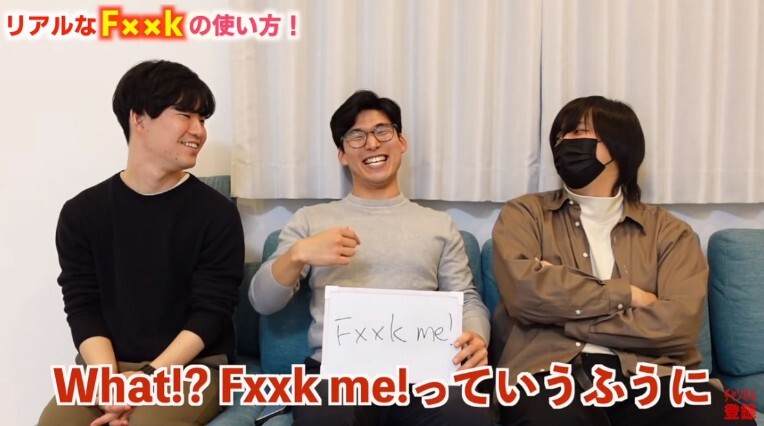I love English and was once good enough to become an English teacher at a Japanese junior high school. But that was in the past, and since then my English skills have been declining rapidly. So, as part of my language learning, I decided to post some simple questions and comments about the English language that are not easy for me (and that I should ask on HiNative or Quora) on Newgrounds. I am not an expert in English and may make elementary mistakes, but thank you for your patience.
"Isabel" by Chaim Potok | English Is Not So Easy 21
Have you ever read the novel "ZEBRA and Other Stories" by Chaim Potok?
ZEBRA is a touching story of friendship between a boy named Zebra, who broke his arm, and a man who lost an arm in the Vietnam War and later teaches an art class at the school during the summer vacation. I heard that it is so well known in the U.S. that it appears in many textbooks. In fact, in Japan, a translated version of ZEBRA has also appeared in textbooks, and every elementary school student in Japan knows this story.

One day, I was curious what the "Other Stories" were, so I bought the book on Amazon. Unfortunately, the Japanese version was not available, so I bought the English version published in New York instead. I read some of it and was surprised by the content: ZEBRA could be included in an elementary school textbook, but all the other short stories are sexually explicit, possibly because they all deal with adolescent boys and girls. But that is one of the reasons I like this novel.
Among them, I really liked the story "ISABEL". The plot of this novel is as follows:
At the age of 14, Isabel lost her father and brother in a car accident. Isabel is so grief-stricken that she begins to hallucinate about her father and brother. Meanwhile, Isabel's mother met a man named Charles Magruder. He, too, had lost his wife to breast cancer and was living with a daughter, Betsy. Isabel's mother and Charles became close and eventually married, and Isabel and Betsy suddenly became stepsisters. This story is told from Isabel's point of view, from the time her mother met Charles to their wedding day.
In this article I would like to introduce a part of ISABEL, one of the other stories from "ZEBRA and Other Stories" by Chaim Potok. I have also written my Japanese translation as an exercise for myself. This may not be necessary for you, but please let me do it.
If you are interested, please stop reading this article and buy "ZEBRA and Other Stories" right now.
================================
“What was your dad like?”
Isabel was quiet a moment. Then she said in a low voice, “My dad was, mostly, sort of easygoing. He liked telling us funny stories.” As she talked, she heard her father’s laughter in the hallway outside Betsy’s room. “He saved people’s lives. He was always reading medical journals, and he liked listening to opera. Sometimes he and my mom would shout at each other, but they loved each other a lot. Sundays we’d all go out for long walks or on picnics or to Longwood Gardens or the zoo. He made great salads and pasta. What was your mom like?”
“My mom had this great sense of humor and liked everyone and always said whatever came into her head. She wasn’t, well, she wasn’t all that good-looking, but everyone liked her. She and my dad, they fought a lot, mostly about his drinking. But I think they were really in love. Can I tell you something?”
“What?”
“Your hair, it’s so long and beautiful. Did your dad have red hair?”
“My dad’s hair was brond,” Isabel said.
“Can I touch it?” Betsy asked, and without waiting for reply, put her hand on the hair alongside Isabel’s forehead. Isabel felt Betsy’s fingers lightly stroking her hair and saw a strange look enter her eyes: they appeared to grow enormous, translucent, the color of watery gray ink. She ran her tongue over her lips, drew her upper lip back, and caught her lower lip between her teeth.
“It’s like silk,” Betsy said.
Isabel stepped back “Please don’t,” she said.
(Chaim Potok, "ZEBRA and Other Stories", Alphred A. Knopf, Inc., 1998, pp.110-111)
[My translation]
「あなたのパパはどんな人だったの?」
イザベルは一瞬沈黙していた。そして低い声でこう言った。「私のパパは、いっつも、なんだかのんきな人だった。おかしな話をするのが大好きで…」彼女がそう言ったとき、ベティの部屋の外の廊下で父親の笑い声が聞こえてきた。「人の命を助けてた。いつも医学の雑誌を読んでて、オペラを聞くのが好きだった。ときどきママとけんかすることもあったけど、すごく愛し合ってた。日曜日にはみんなで出かけてピクニックに行ったり、ロングウッド庭園に行ったり、動物園に行ったりしてた。サラダとパスタを作るのがうまかった。あなたのママはどんな人だったの?」
「私のママはユーモアのセンスがピカイチで、みんなのことが大好きで、思いついたことは何でも言っちゃうような人だった。ママは美人なほうじゃなかったけど、それでもみんなママのことが大好きだった。ママとパパはしょっちゅう、たいていはパパの酒癖のことでけんかしてたけど、愛し合ってたと思う。それから、ひとつ言ってもいい?」
「何?」
「あなたの髪、とっても長くてきれいね。あなたのパパも赤い髪だったの?」
「私のパパは金髪だった」イザベルは言った。
「触ってもいいかしら?」ベティは尋ねた。そして返事を待たずして、彼女はイザベルの額に流れる前髪に手をおいた。イザベルはベティの指が髪を軽くなでるのを感じ、彼女の目に奇妙な表情の浮かぶのを見た。ベティの目は大きく見開かれ、透明で、水っぽい灰色のインクのようだった。彼女は唇の上に舌を這わせ、上唇を後ろに引き、下唇を歯の間に挟んだ。
「シルクみたい」ベティは言った。
イザベルは後ずさりして「お願い、やめて」と言った。
================================
Translation Note:
Unlike the work of J.D. Salinger, which I discussed in the previous article, Chaim Potok's work is written in simple English that is easy for beginners to understand, and translation is not very difficult. However, as I followed the text closely, I made unexpected discoveries.
- At first I thought the phrase "(was) quiet a moment" was a misprint, but it appears several times in other novels. I wonder what the difference is between this phrase and "be quiet for a moment"? Is it just that the former is more colloquial?
- I was curious about the presence of "this" that appears in Betsy's statement, "My mom had this great sense of humor". It seems to me that "had a great sense" would be more appropriate than "had this great sense", but "this" is used. Even I know that "that" is used for emphasis, but is "this" used in the same way?
- Does the Betsy's remark "She wasn't all that good-looking" have a different meaning than "She wasn't that good-looking"? Fortunately, someone with a similar question to mine asked a native speaker on "HiNative" (https://hinative.com/questions/12601471). According to him, using "all that" adds the nuance of "people around her say she is beautiful". I reflected this in my Japanese translation as well.
- At first I interpreted "a strange look enter her eyes" to mean something like "she saw a strange sight," but the following sentence does not describe "the sight Betsy saw," but rather "Betsy's eyes seen by Isabel." So I interpreted this "a strange look" as describing the reflection in her large eyes, is that correct?
- I have heard that "(she) caught her lower lip between her teeth" is a gesture of sexual arousal in Western society. The question here is about the relationship between Betsy and Isabel. In fact, there are several expressions that imply that she loves women.
In this part of the story, Isabel's attachment to her mother, who decided to remarry without consulting her, fades, and at the same time, Betsy, who was in a similar situation to Isabel when her mother died and her father remarried, empathizes with Isabel's emotional trauma and takes on a role in healing her heart.
================================
Isabel stepped back “Please don’t,” she said.
Betsy lowered her hand. “My hair feels like rope,” she said.
“It looks pretty.”
“It’s stringy and dry and ugly,” Betsy said.
“It’s not ugly.”
“Isabel, you don’t have to say things to make me feel better.”
Isabel felt her face burning.
“When my mom died and people were saying all those things—‘She’s at peace now, dear’ and ‘May you be spared further grief, dear’ and ‘Your mom’s no longer suffering, dear’—I swore to myself I’d never say dumb things like that, I’d say what I felt, and if anyone asked me how I felt about my mother dying, I’d say I I felt like shit. But you know something? No one asked me.”
“I’m sorry,” Isabel murmured.
“It’s okay, it’s okay,” Betsy said. “We got that cleared up. What I wanted to say was that your mom has nice skin and nice hair and a really cool, sexy figure. And she and my dad have slept together.”
Isabel stood absolutely still, staring at Betsy.
“In my dad’s bedroom. They thought I was asleep.”
“I don’t think I want to hear about it,” Isabel said after a moment.
“Do you have a problem with me telling you that?” Betsy asked.
“I just don’t want to know about it,” Isabel said.
Betsy gave her a severe look “I thought you’d want me to share everything with you, since we‘re going to be one family.”
Isabel felt little shivers of nausea.
(Chaim Potok, "ZEBRA and Other Stories", Alphred A. Knopf, Inc., 1998, pp.110-111)
[My translation]
イザベルは後ずさりして「お願い、やめて」と言った。
ベティは手をおろした。「私の髪はなんだかロープみたい」彼女は言った。
「かわいいわよ」
「糸みたいで、乾いてて、なんだか不格好で…」ベティは言った。
「そんなこと…」
「イザベル、私を慰めるようなこと言わなくてもいいわ」
イザベルは顔が燃えるような気分がした。
「私のママが死んだときもみんなこう言った。『ママは安らかに眠っている』とか『早く悲しみから抜け出せるといいわね』とか『君のママはもう苦しまなくていいのよ』とか。でもその時、心に誓ったの。私だったらそんなマヌケなことゼッタイに言わない。私は思ったことをきちんと言うわ。もし誰かが私のママが死んだことをどう思うかって聞いてきたら、私はきっとこう言う、そんなのクソくらえだって。でもわかるでしょ?誰もそんなこと聞いてこない」
「ごめんなさい」イザベルはつぶやいた。
「いいのよ、いいの」ベティは言った。「はっきりしてよかった。私が言いたいのは、あなたのママ、お肌もきれいで髪もきれい、とってもクールで、それから可愛い。それにママとパパ、もう一緒に寝てるみたい」
イザベルはベティを見つめて固まった。
「パパの部屋でね。私が寝てるって思ってたのかしら」
「そんな話聞きたくなかった」しばらくたってイザベルはそう言った。
「何か聞きたくない事情でもあった?」ベティは尋ねた。
「ただ単に聞きたくなかっただけ」イザベルは言った。
ベティは険しい表情をして言った。「隠し事なんかなしにしてほしいのかと思ってた。だって私たち家族になるから」
イザベルは嫌悪感からか、わずかな寒気を覚えた。
================================
Translation Note:
- This is a trivial detail, but Betsy uses the word "and" in a way that I have not seen very often. Specifically, when listing three or more things, she uses "A and B and C" when "A, B, and C" is correct. I think Betsy's use of such language in colloquial sentences is very indicative of her character, and I imagined her speaking very quickly in this part. To express her emotions, I had to be very creative in my Japanese translation.
- Betsy's comment, "I'd say I felt like shit," was quite shocking to me, and I imagine to Isabel as well. I can see from this comment that Betsy, unlike Isabel, accepted her mother's death quite early on, and yet people around her still assumed that she was grieving and threw words of sympathy at her, and she could not stand that. Personally, I think these words contain Betsy's heartfelt cry, "Adults don't care what I think, do they?!”
- I translated the part "she and my dad have slept together" very literally because the literal translation of "sleep together" in Japanese also has a sexual meaning. Isabel's mother and Betsy's father have sex many times in this story, but the word "sex" appears only once (in other words, the word "sex" does appear in this story). On other occasions, they use clever euphemisms. Incidentally, one of my favorite euphemisms in the story is "you-know-whating".
Although Betsy's circumstances are similar to Isabel's――the loss of her mother, her father's remarriage, and a change of residence――she is rarely portrayed as emotionally damaged (if anything, she only averts her face during the scene of her parents kissing at the wedding). Betsy appears, at least from Isabel's point of view, to be an independent and strong woman.
This is the end of the article. The protagonists of "ZEBRA and Other Stories" are all adolescents, and they all find their own solutions to their most difficult problems, with a happy ending. This is a good novel, and I would like to recommend it not only to the children in the story, but also to the parents of adolescent children. Thank you for reading to the end.
